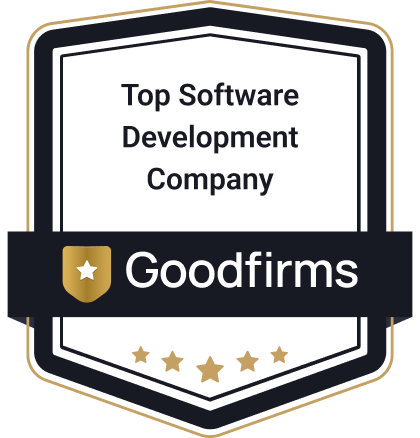Python-embedded software development services encompass Python scripting to automate testing procedures, configure device settings, manage systems resources, handle data logging, control hardware peripherals, and extend the functionality of embedded devices. Python embedded development teams offer rapid prototyping of embedded software using Python and testing of algorithms, user interfaces, and system components for embedded systems. The teams can also assist with Raspberry Pi project development, unmanned aerial vehicle (UAV) app development using DroneKit-Python, and IoT development using Python frameworks like MicroPython and CircuitPython. Chudovo can also assist with data processing and analysis of sensor data and implementing machine learning algorithms in embedded systems by utilizing Python libraries such as NumPy, Pandas, and SciPy.
Chudovo’s embedded software development services cater to businesses and enterprises that want to develop embedded systems using C/C++. Services include developing specifications and architectural designs for embedded systems, the actual structure of embedded software development services & solutions using C, C++, embedded software testing and debugging, and system integration and deployment to integrate embedded software with hardware components. Additionally, our engineers offer embedded Linux development to develop embedded Linux-based systems and can help implement security features and protocols to protect embedded systems from cybersecurity threats. We also offer support and maintenance of C/C++ embedded applications to assure you continued improvements of existing systems to introduce new features, adopt new technologies, improve security, and ensure continued high performance in applications.
Development of firmware in embedded systems, including microcontrollers, SoC devices, home appliances, medical devices, and IoT devices, through our development services. Engineers at Chudovo are capable of helping clients with firmware architectural design, low-level programming of the firmware using C, C++, and Python, and the development of bootloaders to initialize hardware and load the firmware. Besides that, they develop BSPs that allow the integration of firmware with various hardware platforms. It also helps a development team work on firmware performance optimization, performing OTA firmware updates, managing patches, and version-controlling developed firmware.
Chudovo can help in developing device drivers, which act as an interface to establish communication between hardware components and the operating system or any other software application running on the device. The services we provide include the development of custom device drivers for hardware components, porting of developed drivers to new hardware components or new versions of the operating systems, driver integration and deployment, and driver optimization performance tuning. The development team can also offer device driver maintenance and updates and driver documentation and training to help end users understand how to utilize device drivers.
Chudovo provides embedded software development services for mobile embedded systems to be merged with small portable devices like calculators, digital cameras, laptops, smartphones, and wearable devices. The services include designing and implementing mobile embedded systems, operating system porting, implementing wireless communication solutions on mobile embedded systems, integrating sensors such as GPS, accelerometers, and gyroscopes, and developing algorithms for data collection, analysis, and reporting. Chudovo can also assist with creating made-to-order applications tailored to mobile embedded systems, implementing security solutions to protect mobile embedded systems, testing and validating, and technical support and maintenance of existing mobile embedded systems.
Chudovo provides tailor-fit embedded software development services for systems enabled with BLE for, among others, proximity detection, remote control, data logging, sensor monitoring, or asset tracking. The development teams can also participate in integrating Bluetooth modules into embedded systems and will implement Bluetooth communication protocols to establish communication and interaction between embedded systems and external Bluetooth-enabled devices like smartphones, wearables, and IoTs. Chudovo will contribute to the testing and validation of the Bluetooth implementation for embedded systems, which is optimized in its power consumption while performing Bluetooth communications.
Embedded AI software development services are centered on businesses and enterprises that want to build AI-powered embedded applications for Raspberry Pi, Raspberry Pi Zero W, Nvidia Jetson, and Google Coral. To achieve this, our teams can integrate AI models and algorithms with hardware platforms such as microcontrollers to create custom embedded systems that support AI execution on embedded devices. Our experts develop custom AI algorithms for embedded systems, optimize AI models for use in embedded systems, and address security concerns that come with embedded AI development. Additionally, Chudovo can build edge computing solutions that use embedded AI for real-time data processing and analysis and integrate AI algorithms with sensor data fusion techniques for enhanced perception and environmental understanding in embedded systems.



Industry: Healthcare
Chudovo played a key role in the development of a diabetes management application that uses advanced embedded solutions to extend connectivity and permit real-time data processing. This system uses BLE technology, which is at the main core of connectivity between insulin pumps, glucometers, and the mobile application. Built-in BLE allows for constant blood glucose monitoring. This data is transmitted and automatically imported to the application, which will provide accurate suggestions on insulin dosages. Embedded solutions ensure robust performance on a range of hardware platforms, including mobile devices and personal computers, to enhance functionality and reliability. The advanced setup provides highly personalized care, thus improving the experience and outcomes for patients in the management of diabetes.
AI/FPV copters
Chudovo develops embedded systems for precise control and navigation of unmanned aerial vehicles (UAVs). The development team carries out embedded systems to handle challenging flight dynamics, real-time data processing, and autonomous navigation tasks. This is achieved using flight control firmware such as Betaflight and Ardupilot, an uncrewed vehicle autopilot software suite. We also integrate advanced algorithms, sensor fusion techniques, and control mechanisms to help UAVs navigate diverse environments. Chudovo works on flight control algorithms, optimizes sensor integration, and enhances communication in uncrewed vehicles.
Industry: AI
Case study 1. To increase the competitiveness of a company that offers video management software for security cameras, Chudovo developed advanced anomaly analysis and detection algorithms to predict and prevent ATM attacks. AI technologies are used for video analysis and anomaly detection, which are then implemented into an embedded system for CCTV cameras. This implementation helps to increase security, prevent attacks, and give the video management software a competitive advantage.
Case study 2. In addition, the Chudovo team worked on another project that also requires the development of video management software. This application is designed to combine embedded software development and artificial intelligence to facilitate contactless facial recognition. Chudovo developed algorithms to verify the identity of people captured by the cameras connected to the video management software.
Case study 3. The development of AI algorithms for embedded systems also includes warehouse management software. For this, our software engineers developed an AI algorithm to identify brands of goods and perform an inventory to gain insights into available inventory and forecasted goods demand. This algorithm was integrated into the embedded video data analytics software for warehouses. The solution automated and simplified the logistics process and eliminated the need for additional labor.
Industry: Telecommunications
Case Study 1. A leading network solutions provider commissioned Chudovo to develop an embedded software for controlling network switches – NexMan. The solution enables customers to configure and use network switches. In addition, the embedded software was equipped with an intuitive web user interface, which made it possible to set up hardware integrations independently. Chudovo also performed thorough testing of the software, wrote and compiled the technical documentation of the software, and provided comprehensive consulting on embedded software to ensure optimal quoting, decision-making, proper deployment, and management of the software.
Case Study 2. The main aim of the project was the development of the web UI for managing TP-Link switches. The next level beyond designing the web user interface for the TP-Link switches shall be to create an interaction model that any user could easily and naturally instantiate; thereby, through some minimal effort, the individual in question gets to engage with the switches in the indicated ways, and manage the network performance, and other configurations summoned here before, mainly for simplification for the administrator.
Firmware: This is a class of embedded software uniquely identified with the hardware it controls. Firmware resides in non-volatile memory, such as ROM or Flash, and controls low-level hardware operations. Firmware is essential because its implementation provides for necessary hardware initialization and low-level operation.
Embedded Software: This generic term refers to firmware and various forms of software that operate on embedded systems. It also encompasses application logic, operating systems, and device drivers, which can execute even more complex tasks and allow interaction with hardware in ways other than simple control.